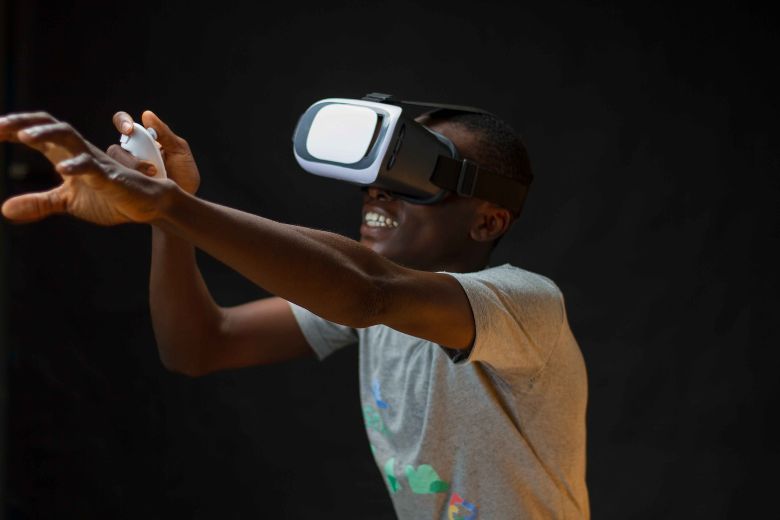Artificial Intelligence in Healthcare: Transforming the Industry
Table of Contents
Artificial Intelligence (AI) has become a game-changer in various industries, and healthcare is no exception. In recent years, AI has emerged as a transformative technology that holds immense potential to revolutionize the healthcare sector. From enhancing patient care to streamlining administrative tasks, AI is redefining the way healthcare services are delivered. In this article, we will explore the numerous applications of AI in healthcare and how it is reshaping the entire industry.
The Role of AI in Diagnostics and Imaging
AI is significantly impacting the field of diagnostics and medical imaging. It can analyze vast amounts of data from medical images, such as X-rays, CT scans, and MRIs, with incredible accuracy. AI algorithms can detect abnormalities, identify diseases, and assist healthcare professionals in making faster and more precise diagnoses. This not only improves patient outcomes but also reduces the burden on medical practitioners.
AI for Personalized Treatment Plans
One of the most promising aspects of AI in healthcare is its ability to develop personalized treatment plans for patients. By analyzing patient data, including medical history, genetics, and lifestyle, AI can recommend tailored treatment options. This approach ensures that patients receive the most effective treatments for their specific conditions, ultimately leading to better recovery rates and improved quality of life.
Virtual Health Assistants
AI-driven virtual health assistants are becoming increasingly popular in the healthcare industry. These intelligent chatbots can interact with patients, answer their medical queries, and provide basic medical advice. Virtual health assistants are available 24/7, enabling patients to access medical information and support at their convenience. This accessibility enhances patient engagement and empowers individuals to take proactive measures for their health.
AI in Drug Discovery and Development
Traditional drug discovery and development processes are time-consuming and expensive. However, AI is revolutionizing this area by expediting the identification of potential drug candidates. AI algorithms can analyze vast databases to predict drug interactions, identify drug targets, and even design novel molecules. With AI’s assistance, pharmaceutical companies can bring new drugs to market faster, addressing unmet medical needs more efficiently.
Enhancing Patient Monitoring with AI
AI-powered monitoring systems are transforming patient care within healthcare facilities. These systems can continuously monitor patients’ vital signs and alert medical staff in real time if any anomalies are detected. This early warning system helps prevent adverse events and allows healthcare professionals to provide immediate attention to critical cases, saving lives in emergency situations.
AI for Predictive Analytics
The power of AI lies in its predictive capabilities. By analyzing historical patient data, AI can predict potential health risks and identify patients at higher risk of developing certain conditions. This enables healthcare providers to implement preventive measures, intervene early, and manage chronic illnesses more effectively. Consequently, AI-driven predictive analytics is driving healthcare toward a more proactive and preventive model.
AI and Robotic Surgery
In the realm of surgical procedures, AI is making its mark through robotic-assisted surgeries. AI-driven robotic systems can perform intricate surgeries with unparalleled precision, reducing the margin of error and minimizing the risk of complications. Surgeons can control these robots during procedures, enhancing their capabilities and enabling minimally invasive techniques that lead to faster recovery times for patients.
The Ethical Implications of AI in Healthcare
While the integration of AI in healthcare offers numerous benefits, it also raises ethical considerations. Issues related to data privacy, patient consent, and potential biases in AI algorithms must be addressed. Striking the right balance between leveraging AI’s capabilities and ensuring patient safety and privacy remains a critical challenge.
The Future of AI in Healthcare
The future of AI in healthcare is incredibly promising. As technology continues to advance, AI’s impact on healthcare will grow exponentially. From personalized medicine and disease prevention to improved patient outcomes and cost-efficiency, AI will be at the forefront of healthcare transformation.
Conclusion
Artificial Intelligence is undoubtedly revolutionizing the healthcare industry. From revolutionizing diagnostics and personalized treatment plans to virtual health assistants and robotic surgeries, AI’s applications are vast and diverse. While there are ethical considerations to address, the potential benefits of AI in healthcare cannot be denied. As we move forward, embracing AI’s capabilities responsibly and ethically will shape a brighter and healthier future for the industry.
FAQs
- What is the role of AI in diagnostics? AI plays a significant role in diagnostics by analyzing medical images with high accuracy, aiding in faster and more precise diagnoses.
- How does AI impact drug discovery? AI expedites drug discovery by analyzing vast databases, predicting drug interactions, and designing novel molecules.
- Can AI-powered virtual health assistants replace human doctors? No, virtual health assistants complement human doctors by providing medical advice and support but cannot replace them.
- What are the potential risks of using AI in healthcare? The main risks include data privacy concerns, patient consent, and potential biases in AI algorithms.
- How will AI shape the future of healthcare? AI will lead to personalized medicine, improved patient outcomes, and greater cost-efficiency in healthcare services.
- The Impact of Augmented Reality on Education and Training


